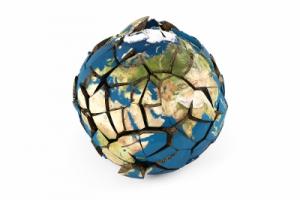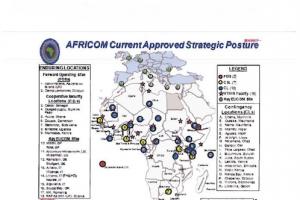Tidbits - November 23, 2017 - Reader Comments: Portside annual Fund Appeal; Trump Tax Scam; The US and Africa; Keystone Pipeline; Public Bank Option; Sci-Fi and Fantasy; and more....
Portside
 Reader Comments: U.S. Armed Forces in Africa - Why?; 1965 Indonesia Slaughter; Puerto Rico Recovery, by Puerto Ricans; Whitefish Energy Scandal; NAACP Urges Black Passengers to Avoid Flying American Airlines; Stevie Wonder Sang the National Anthem on His Knees; Lost Mural by Secret Communist Unearthed; Abortion Resources; Then They Came For Me - Chicago exhibit until November 19; Join George Takei for premiere of "And Then They Came for Us"; and more.....
Reader Comments: U.S. Armed Forces in Africa - Why?; 1965 Indonesia Slaughter; Puerto Rico Recovery, by Puerto Ricans; Whitefish Energy Scandal; NAACP Urges Black Passengers to Avoid Flying American Airlines; Stevie Wonder Sang the National Anthem on His Knees; Lost Mural by Secret Communist Unearthed; Abortion Resources; Then They Came For Me - Chicago exhibit until November 19; Join George Takei for premiere of "And Then They Came for Us"; and more.....
 A country that hasn’t had a civil war in more than 150 years, where secessionist movements from Texas to Vermont have generally caused merriment not concern, now faces divisions so serious, and a civilian arsenal of weapons so huge, that the possibility of national disintegration has become part of mainstream conversation. Indeed, after the 2016 elections, predicting a second civil war in the United States has become all the rage across the political spectrum.
A country that hasn’t had a civil war in more than 150 years, where secessionist movements from Texas to Vermont have generally caused merriment not concern, now faces divisions so serious, and a civilian arsenal of weapons so huge, that the possibility of national disintegration has become part of mainstream conversation. Indeed, after the 2016 elections, predicting a second civil war in the United States has become all the rage across the political spectrum.
 Secret U.S. military documents reveal a constellation of American military bases across Africa. With the Trump administration escalating its wars in Africa and the Middle East, and the potential for more crises -- from catastrophic famines to spreading wars -- on the horizon, there’s every reason to believe the U.S. military’s footprint on the continent will continue to evolve, expand, and enlarge in the years ahead, outpost by outpost and base by base.
Secret U.S. military documents reveal a constellation of American military bases across Africa. With the Trump administration escalating its wars in Africa and the Middle East, and the potential for more crises -- from catastrophic famines to spreading wars -- on the horizon, there’s every reason to believe the U.S. military’s footprint on the continent will continue to evolve, expand, and enlarge in the years ahead, outpost by outpost and base by base.
 “We have a word for the conscious slaughter of a racial or ethnic group: genocide. For the conscious destruction of aspects of the environment: ecocide. But we don’t have a word for the conscious act of destroying the planet we live on, the world as humanity has known it. A possibility might be ‘terracide’ from the Latin word for earth. It has the right ring, given its similarity to the commonplace danger word of our era: terrorist." Tom Engelhardt, May 2013
“We have a word for the conscious slaughter of a racial or ethnic group: genocide. For the conscious destruction of aspects of the environment: ecocide. But we don’t have a word for the conscious act of destroying the planet we live on, the world as humanity has known it. A possibility might be ‘terracide’ from the Latin word for earth. It has the right ring, given its similarity to the commonplace danger word of our era: terrorist." Tom Engelhardt, May 2013
Spread the word